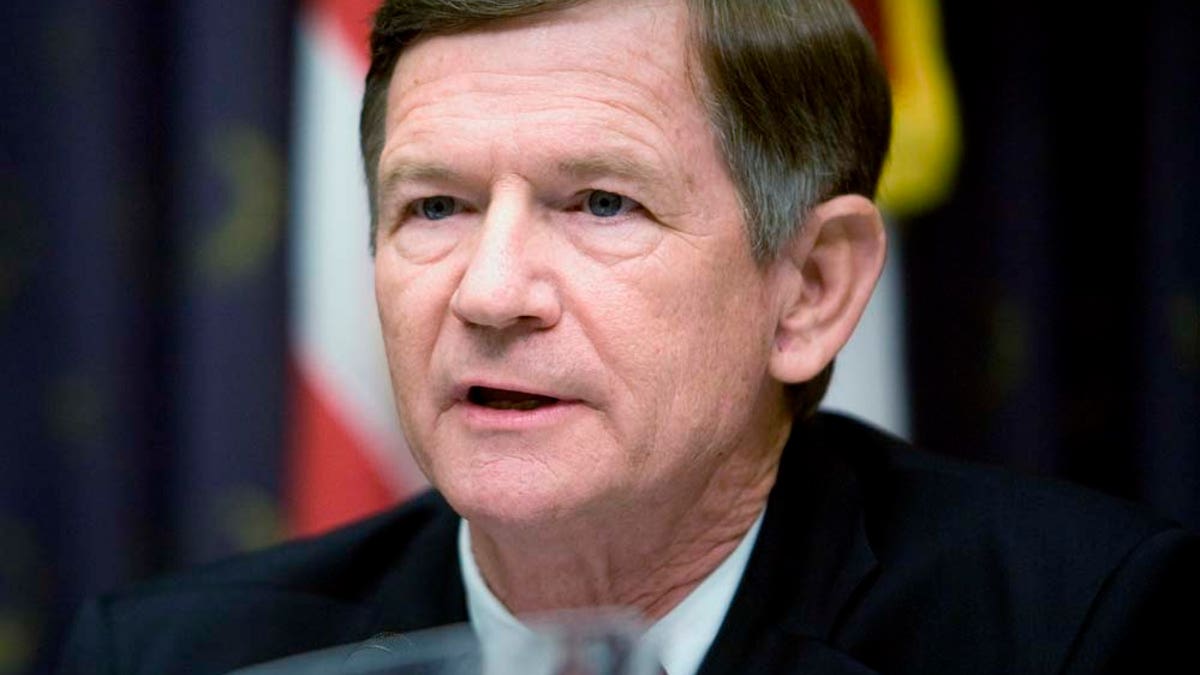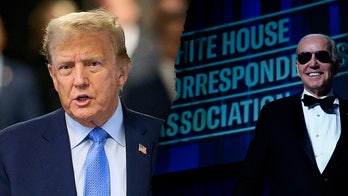
JUNE 20: Representative Lamar Smith (R-TX), here in 2008, introduced a bill that would require U.S. businesses to verify new workers through a government database. (Photo by Brendan Smialowski/Getty Images) (2008 Getty Images)
The introduction of the controversial E-Verify bill on Tuesday could, depending on whom you ask, have lasting impacts on everyone from migrant workers to the president of the United States.
The debate, revived on Tuesday when Rep. Lamar Smith (R-Texas) introduced the Legal Workforce Act – which would make it mandatory for U.S. businesses to verify new workers' legal status through a government database – could have ramifications across that entire spectrum.
Smith, the House Judiciary Committee chairman, defended the legislation by saying that it would not only verify that workers are in the country legally – but also put a dent in the unemployment rate.
"With unemployment at 9 percent, jobs are scarce," Smith said in a statement. "Despite record unemployment, seven million people work in the U.S. illegally. These jobs should go to legal workers.
"E-Verify is a successful program to help ensure that jobs are reserved for citizens and legal workers," he added. "The 'E' in E-Verify could just as well stand for 'easy' and 'effective.' It takes just a few minutes to use and easily confirms 99.5 percent of work-eligible employees. There is no other legislation that can be enacted that will create more jobs for American workers."
The bill would give the agriculture industry – long opponents of E-Verify because, they argue, of its impact on legal immigrant workers and its effect on the workforce – a three-year window to screen all new hires for eligibility.
"We recognize that the agriculture industry is a special situation and we need to treat them differently," Smith said.
Still, agriculture industry officials have said the current system to hire legal immigrant workers — the H-2A visa program — is too cumbersome, time consuming and costly to use effectively.
"It has never been a great program or easy to work with," said Cathleen Enright, vice president of federal government affairs for the Western Growers Association. "It's an unbelievably crushing program."
Smith introduced the bill about three weeks after the Supreme Court upheld an employer sanction law in Arizona that required businesses to use E-Verify or face losing their business licenses.
Smith's bill would apply only to new hires. It also would pre-empt any state laws and end the use of paper I-9 forms that businesses currently use to show that they've verified that their workers are legally eligible to hold a job in the U.S.
Rep. Luis Gutiérrez (D-Ill) on Tuesday said Latinos nationwide would not support an expansion of E-Verify – and would not hesitate to express that displeasure coming election time in 2012.
"The president's Hispanic advisors must make him understand that signing such a proposal before the 2012 elections is not acceptable to the Latino community," Gutiérrez said, according to EFE.
The warning came on the same day that President Obama was in Puerto Rico, the first time a sitting president had visited the U.S. territory, trying to court mainland Puerto Rican and Latino votes.
Beyond the political ramifications, Gutiérrez added that the legislation, which hopes to displace millions of undocumented employees with new and authorized workers, is not realistic.
Republicans "have the false hope that the 11 million undocumented workers and their families will leave if we make things difficult," he said. "That's a fantasy. They're not going to leave; they have their life here."
The Associated Press contributed to this article.
Follow us on twitter.com/foxnewslatino
Like us at facebook.com/foxnewslatino




